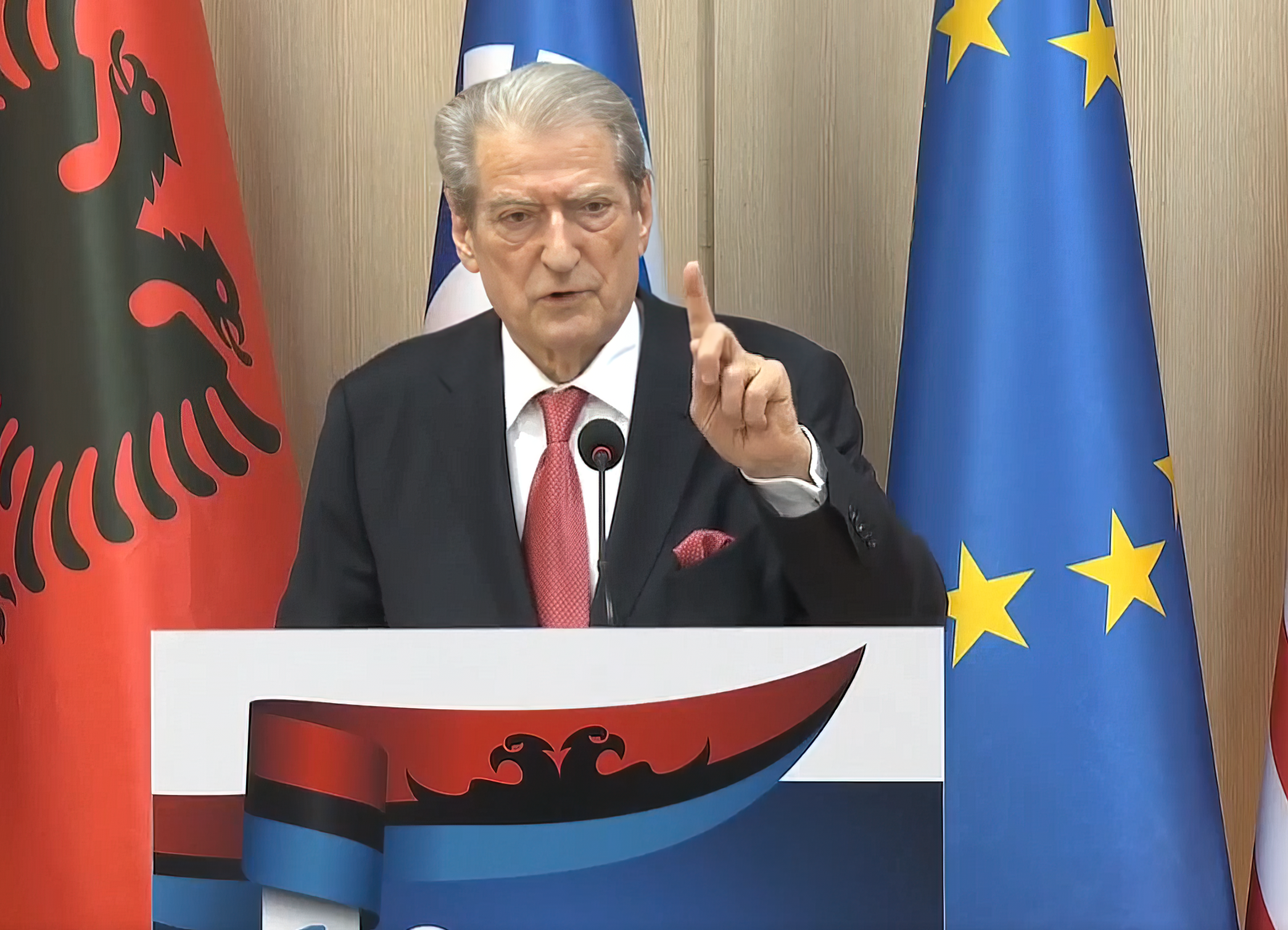Berisha refuses to concede defeat, calls for protests, as Socialists secure fourth term in landslide 2025 victory

Photo: Sali Berisha, leader of the Democratic Party.
As Albania’s May 11 parliamentary election results neared finalization, Sali Berisha held a press conference refusing to recognize the outcome, despite a crushing defeat that saw his party lose over 200,000 votes compared to 2021. The DP leader alleged electoral manipulation and called for a protest on May 16–coinciding with the European Political Community Summit in Tirana.
Why this is important: The refusal to accept the outcome came as no surprise to many observers. In the weeks leading up to the vote, with a flood of surveys indicating a Socialist landslide, speculation mounted that Berisha would cry fraud if defeated—both to avoid resigning as party leader, as required by the DP statute, and to retain control of the party as a political shield amid ongoing legal troubles. The final tally, with the Socialist Party (PS) projected to secure around 82–83 mandates, aligns closely with internal SP projections and even on-air forecasts made weeks before election day.
Context: The scale of the DP’s collapse is historic. With most ballots counted, results show that the DP and its allies have won just 52 seats—its worst performance since 1997. That year, Albania was in turmoil following the collapse of pyramid schemes and a nationwide revolt against the DP government. Worse still for Berisha, the result is even lower than the party’s 2021 showing under Lulzim Basha—the very outcome he had promised to reverse when he returned to the party’s leadership.
Berisha claims the election was rigged, accusing the government of issuing cannabis cultivation licenses, forgiving €150 million in fines, and using public funds to sway voters. However, international observers, including OSCE/ODIHR, found no evidence of systemic fraud that would support these claims. They concluded that the elections were well-managed and transparent, though they did raise concerns about the misuse of public resources and unequal campaign conditions. Moreover, many observers—including DP supporters—point out that none of these claims explain how the party lost 15–20% of its vote share.
What else: Political insiders note that Berisha had already prepared for this outcome by stacking the safe lists with ultra-loyal MPs—at significant cost to the party. This move alienated many primary winners and led to internal rifts but ensured Berisha could maintain control even in defeat. His call for a protest during the European summit is seen as a calculated effort to draw international attention and distract critics from calling for an analysis of the results.
What’s next: There are early signs of internal dissent within the DP. Critics inside the party and conservative commentators argue that the results reflect voters’ desire for a new kind of opposition. Some are calling for a leadership transition, warning that if Berisha refuses to step down, the DP risks further decline. If history is any guide—over his 35-year political career, Berisha has refused to acknowledge any election he lost—he is likely to cling to power, despite visible political and even physical decline, backed by a loyal inner circle. This, many warn, will only lead to further erosion and possible fragmentation of the party.


